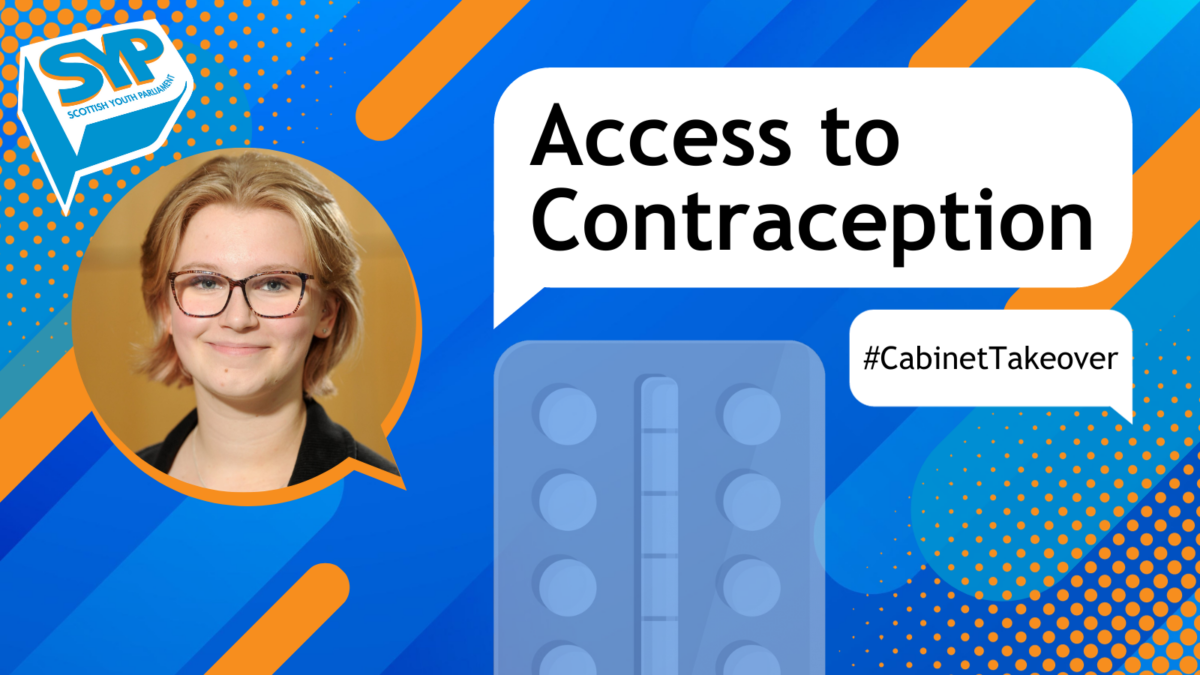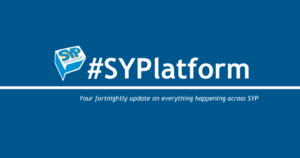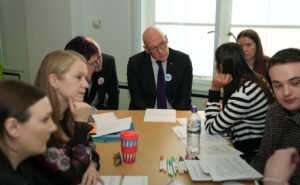At the Annual Children and Young People’s Cabinet Takeover 2023 I had the chance to speak about access to the right to contraception. I took this opportunity to highlight the inaccessibility of contraception as well as the need for comprehensive education on the topic that also encompasses menstrual health.
This topic is particularly close to my heart as someone who has a medical condition where contraceptive medications are commonly used to manage it.
You can read my speech below:
Headache, nausea, feeling ‘generally unwell’, harmful blood clots, severe allergic reaction, stroke, heart attack… the list goes on. These are just 7 of the 56 side effects I could experience from the hormonal patch I have. A patch that has quite literally changed my life and reduced the excruciating pain I experience on my period. Does me talking about my period make you feel uneasy, a little uncomfortable? Well, stigma because of lack of comprehensive education does that.
Scotland currently supports the right to contraception by providing free contraception on the NHS, but young people are still facing problems with education and accessibility. When we consulted with young people, we found that, when asked about their knowledge of contraception, young people ‘only knew because they had to teach themselves’ or that ‘they weren’t being taken seriously when talking about their reproductive health’. According to a recent survey by the Contraception Education and Reform Team, 95.5% believe improvements need to be made involving contraception in Scotland. Our healthcare and education systems should be empowering young people to make informed decisions, but they are not doing that.
Current contraception education shows inconsistencies across ages and geographical locations, with some getting comprehensive education, whilst others are only getting what resembles the famous quote from the movie Mean Girls, ‘Don’t have sex because you will get pregnant and die.’
From the age of 11 to 17 I missed around 168 days of my life; this is just 12 days short of an entire school year. While my friends were learning and having fun, I was crying, fainting, and throwing up because of period pain which I thought was normal. Spoiler alert: It wasn’t but I never learned that in school!
That pain I had for all those years is a condition called endometriosis – which affects around 10% of people who menstruate globally. Despite it being this prevalent, according to Endometriosis UK, it takes around 8 years from the onset of symptoms to reach a diagnosis. Contraceptive medications are used to manage the condition which is why we need access to this knowledge.
Our education and healthcare systems failed me, just like they’ve failed so many other young people who menstruate. That is why I am asking you today to make it mandatory that schools implement comprehensive contraceptive education, including types of contraception, side effects, and what they can be used for, and include menstrual health in this.
The Women’s Health Plan has been beneficial in outlining areas of health inequality; however, it has lacked the meaningful engagement of young people, something which would strengthen your commitment to this issue. My ask of you today is for the Scottish Youth Parliament to be involved in the Women’s Health Plan and future consultations like it.
I’m here not just because of my individual experience. I’m here for all the young people who are fighting to be heard.
Our bodies. Our Choice.



